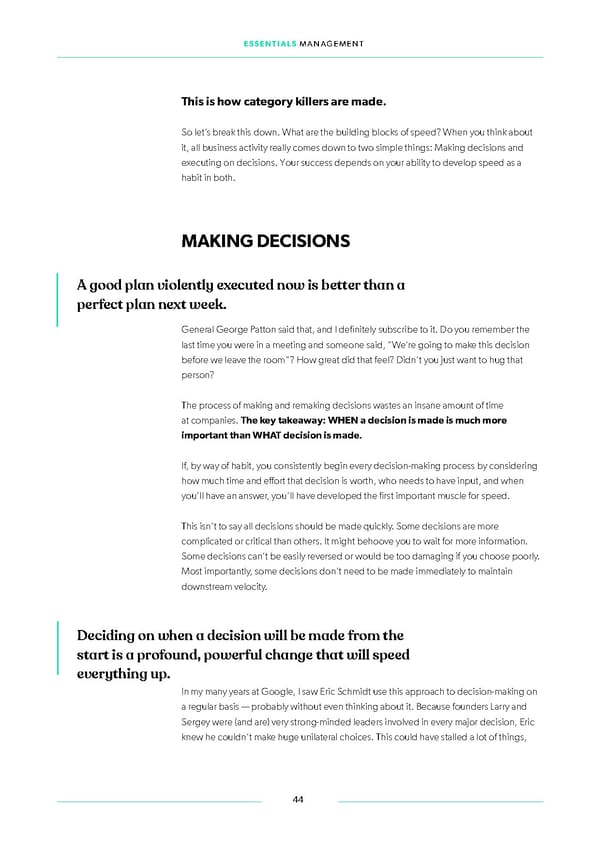ESSENTIALS MANAGEMENT This is how category killers are made. So let’s break this down. What are the building blocks of speed? When you think about it, all business activity really comes down to two simple things: Making decisions and executing on decisions. Your success depends on your ability to develop speed as a habit in both. MAKING DECISIONS A good plan violently executed now is better than a perfect plan next week. General George Patton said that, and I deifnitely subscribe to it. Do you remember the last time you were in a meeting and someone said, “We’re going to make this decision before we leave the room”? How great did that feel? Didn’t you just want to hug that person? The process of making and remaking decisions wastes an insane amount of time at companies. The key takeaway: WHEN a decision is made is much more important than WHAT decision is made. If, by way of habit, you consistently begin every decision-making process by considering how much time and effort that decision is worth, who needs to have input, and when you’ll have an answer, you’ll have developed the ifrst important muscle for speed. This isn’t to say all decisions should be made quickly. Some decisions are more complicated or critical than others. It might behoove you to wait for more information. Some decisions can’t be easily reversed or would be too damaging if you choose poorly. Most importantly, some decisions don’t need to be made immediately to maintain downstream velocity. Deciding on when a decision will be made from the start is a profound, powerful change that will speed everything up. In my many years at Google, I saw Eric Schmidt use this approach to decision-making on a regular basis — probably without even thinking about it. Because founders Larry and Sergey were (and are) very strong-minded leaders involved in every major decision, Eric knew he couldn’t make huge unilateral choices. This could have stalled a lot of things, 44
 Essentials Management First Round Capital Page 43 Page 45
Essentials Management First Round Capital Page 43 Page 45